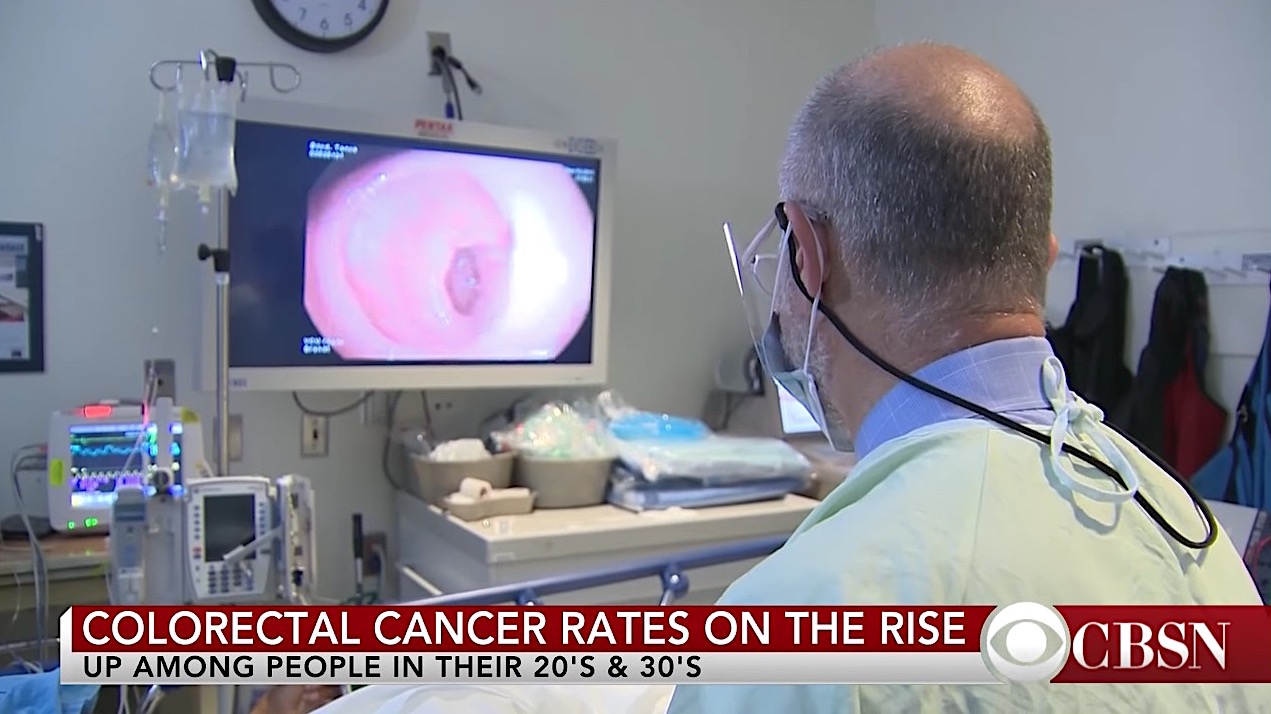Colorectal cancer rates are rising sharply in people under 40, and doctors are baffled and worried


A free daily email with the biggest news stories of the day – and the best features from TheWeek.com
You are now subscribed
Your newsletter sign-up was successful
The rates of colorectal cancer have been steadily dropping for people born before 1950, but a sharp rise in colon and especially rectal cancer in people in their 20s and 30s has doctors worried and flummoxed. On Tuesday, researchers with the American Cancer Society published a study in the Journal of the National Cancer Institute estimating that Americans under 50 will be hit with 13,500 new cases of colon and rectal cancers this year, a growing percentage of the some 95,000 colon cancer and 40,000 rectal cancer diagnoses among all ages.
"People born in 1990, like my son, have double the risk of colon cancer and quadruple the risk of rectal cancer" as someone born in 1950 at the same age, epidemiologist Rebecca Siegel, the lead author of the study, tells The New York Times. Worse, "they carry the risk forward with them as they age." The analysis is the largest and most detailed to date of colorectal cancer incidence, and it found a 1-2.4 percent increase in colon cancer rates among people 20 to 39 every year since the mid-1980s, versus a 0.5-1.3 percent annual increase in adults 40 to 54 and a decline among people 55 and older. The rates for rectal cancer are worse, rising by 3.2 percent a year for Americans in their 20s from 1974 to 2013.
Colorectal cancer is hard to diagnose from external factors — the symptoms, when they are present, include things like prolonged diarrhea or constipation, abdominal pain, bloody stools, or other digestive ailments. Colonoscopies aren't encouraged (or generally covered by health insurance) until age 50, and less invasive or cheaper tests are still not on par. Doctors have some theories about why colorectal cancer cases are rising sharply in younger people — risk factors including obesity, sedentary lifestyle, heavy alcohol use, and certain chronic illnesses that are on the rise — but "the honest truth is nobody knows 100 percent why there is an increase," said Dr. Mohamed E. Salem at Lombardi Comprehensive Cancer Center at Georgetown University, who says 60 percent of his patients are younger than him, and he's 42. You can read more about the worrisome mystery at The New York Times, or learn more in the CBS News report below. Peter Weber
The Week
Escape your echo chamber. Get the facts behind the news, plus analysis from multiple perspectives.

Sign up for The Week's Free Newsletters
From our morning news briefing to a weekly Good News Newsletter, get the best of The Week delivered directly to your inbox.
From our morning news briefing to a weekly Good News Newsletter, get the best of The Week delivered directly to your inbox.
A free daily email with the biggest news stories of the day – and the best features from TheWeek.com
Peter has worked as a news and culture writer and editor at The Week since the site's launch in 2008. He covers politics, world affairs, religion and cultural currents. His journalism career began as a copy editor at a financial newswire and has included editorial positions at The New York Times Magazine, Facts on File, and Oregon State University.
-
 ‘Restaurateurs have become millionaires’
‘Restaurateurs have become millionaires’Instant Opinion Opinion, comment and editorials of the day
-
 Earth is rapidly approaching a ‘hothouse’ trajectory of warming
Earth is rapidly approaching a ‘hothouse’ trajectory of warmingThe explainer It may become impossible to fix
-
 Health insurance: Premiums soar as ACA subsidies end
Health insurance: Premiums soar as ACA subsidies endFeature 1.4 million people have dropped coverage
-
 TikTok secures deal to remain in US
TikTok secures deal to remain in USSpeed Read ByteDance will form a US version of the popular video-sharing platform
-
 Unemployment rate ticks up amid fall job losses
Unemployment rate ticks up amid fall job lossesSpeed Read Data released by the Commerce Department indicates ‘one of the weakest American labor markets in years’
-
 US mints final penny after 232-year run
US mints final penny after 232-year runSpeed Read Production of the one-cent coin has ended
-
 Warner Bros. explores sale amid Paramount bids
Warner Bros. explores sale amid Paramount bidsSpeed Read The media giant, home to HBO and DC Studios, has received interest from multiple buying parties
-
 Gold tops $4K per ounce, signaling financial unease
Gold tops $4K per ounce, signaling financial uneaseSpeed Read Investors are worried about President Donald Trump’s trade war
-
 Electronic Arts to go private in record $55B deal
Electronic Arts to go private in record $55B dealspeed read The video game giant is behind ‘The Sims’ and ‘Madden NFL’
-
 New York court tosses Trump's $500M fraud fine
New York court tosses Trump's $500M fraud fineSpeed Read A divided appeals court threw out a hefty penalty against President Trump for fraudulently inflating his wealth
-
 Trump said to seek government stake in Intel
Trump said to seek government stake in IntelSpeed Read The president and Intel CEO Lip-Bu Tan reportedly discussed the proposal at a recent meeting
